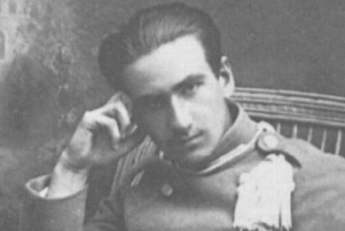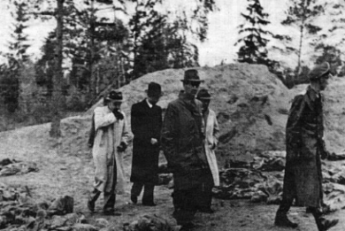
A story that touches
Writing documentary, biographical and historical books is not the obvious and easy thing to do. A history book should be written well – without subjectivity, without ignoring the facts, without endorsing either side.
Mackiewicz practiced literature which was based mainly on historical knowledge, sources, documents, and eyewitness accounts of events.
His books, however, were not limited to his memory and knowledge only. He wrote about the world in accordance with the principle that he professed: “Only the truth is interesting.” He was not afraid to take up topics that could violate the stereotypical collective historical memory. He looked for the truth in the recesses of human psychology and was not afraid to take up inconvenient and controversial topics.
Among the books that stand out significantly from other novels of that period, there are such items as the collection of short stories The 16th between the third and the seventh, where Mackiewicz deformed national stereotypes, and Revolt of royalists, where he showed the social and religious conflicts of the Vilnius region and Polesie and criticized the Polish administration for its policy towards the local population.
Józef Mackiewicz often controversially described various historical issues that are significant for the Polish and Lithuanian nations. More than once he described the Soviet and German occupation, touching on the topic of collaboration with the occupiers. On the other hand, in the book Left Free, he expressed an unpopular opinion on the meaning of Piłsudski’s victory in 1920.
Many of Mackiewicz’s novels are touching the reader – thanks to the presentation of history in a different light, unknown to the reader. His work is a kind of chronicle and journalistic report, where facts and detail in describing the hero’s experiences are of great importance. A writer often narrows down a perspective to the hero’s line of sight or to what he is saying, it reaches back to his memory. An interesting aspect of his work is that he sometimes reported secret conversations, facts or arrangements that we will not read either in a history textbook or in any other scientific and historical article. This influences the reader’s perception of the story, who can feel it, imagine it and worry about it.
The work of Józef Mackiewicz is a story that moves – and one that cannot be forgotten once you read it.
Translated by Joanna Zawalska







